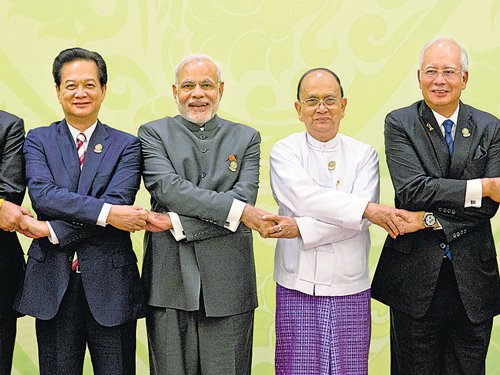In the wake of dropping out of the Regional Comprehensive Economic Partnership in November, India is working towards strengthening the commercial and trade deals with the ASEAN group and South Korea and Japan. The Commerce Minister Piyush Goyal informed the parliament on Tuesday that the priority for the government is to correct the asymmetry in the existing agreements and maximize its export potential to benefit domestic industry and farmers.
India is considering the option of trade and goods agreements with its Southeast Asian countries to boost exports after withdrawing from China-backed RCEP trade pact.
The NDA-led government withdrew from the Regional Comprehensive Economic Partnership (RCEP) in November, protecting farmers from the deal’s potential impact on the livelihoods and job creation. However, China said that the other 15 countries decided to keep away from the pact and New Delhi was welcome to join the Regional Comprehensive Economic Partnership whenever India thinks to join again. Japan has refused to pact any trade deal with India on account of deciding to stay outside the RCEP.
Akhil Bery and Peter Mumford, analysts at risk consultancy Eurasia Group, said in a statement on Monday, “Modi government is also trying to mitigate some of the damage that was done to India’s reputation with global investors and the economic costs of being outside RCEP by intensifying rhetoric on pursuing new or revamped bilateral trade deals,”.
The analysts added further that Indian government is particularly eager to move ahead with trade negotiations with the U.S., European Union and Australia, while also looking to upgrade its existing FTAs with ASEAN countries and South Korea.

